As cat owners, we must ensure our furry friends have a clean and comfortable environment. One common question that arises is whether or not cat litter expires. The answer is yes, cat litter does expire.
However, over time, the effectiveness of the litter may diminish as it becomes saturated with urine and feces.
Some litter may clump together and become more challenging to scoop as they age. It’s also worth noting that certain types of litter may have an expiration date listed on their packaging due to potential changes in texture or odor over time.
What is a Cat Litter?
Cat litter is a material that absorbs cats’ urine and feces. It comprises silica gel, clay, paper, wood, and natural materials like soybean husk, pine, corn, wheat, coffee grounds, and hay. Some cat litter is scented and unscented as clumping and non clumping variations.
Does Cat Litter have an Expiration Date?
Many pet owners wonder if cat litter has an expiration date. The truth is that most types of cat litter have yet to set an expiry date, but they can lose their effectiveness over time.
However, there are a few exceptions to this rule. For example, some natural and biodegradable litter made from materials like wheat or corn may have an expiration date since they can break down over time.
8 Ways to Determine Does Cat Litter Expire?
1: Clumping Issues:
Fresh cat litter clumps well, but it’s time to change it if it doesn’t. Clumping issues are caused by moisture-absorbing agents in litter losing their effectiveness.
2: Moisture:
Kitty litter expires when cats feel moist, so dump it. Litter moisture can cause bacterial growth, leading to cat health issues like urinary tract issues.
3: Strong Odor:
The main purpose of cat litter is to absorb unpleasant odors from your feline friend’s waste. If you notice a terrible litter smell after cleaning the litter box, the cat litter has expired. Bacteria can grow on expired kitty litter and cause cat owners health issues, like breathing problems.
4: Change in Color:
Sometimes, the litter additives responsible for odor control or antibacterial properties might degrade over time, leading to a color change. This can indicate that the litter is no longer as effective as it should be.
Important Notes: While a litter’s color change can indicate that it has absorbed moisture or reacted with urine, it doesn’t necessarily mean the litter is expired. However, if the color changes, it means a noticeable decrease in effectiveness (such as increased odor or reduced clumping); it might be time to replace the litter.
5: Mold or Mildew:
Mold or mildew growth on cat litter strongly indicates that the litter has expired. These fungal growths make the kitty litter less effective and can cause serious health issues in cats.
6: Texture and Granule Size:
The best cat litter has uniform granules and size, but if you notice any changes in the granules, it may need to perform better, and it’s time to switch it out.
7: Discoloration Or Clumping in the Bag:
If the Bag of cat litter is exposed to moisture, the litter can change color. Store the litter in a dry, cool place and ensure the Bag is adequately sealed after each use.
Clumping litters, such as those made from clay or silica gel, form clumps when they come into contact with liquid. If the litter clumps inside the Bag, it’s a sign it is exposed to moisture.
8: Check for Expiry Information on Packaging:
You should check the expiration information on the packaging and use it before the expiration date.
Using Online Resources to Confirm Expiry Dates:
In today’s digital age, confirming the expiry dates of cat litter has become easier than ever.
Various websites and online tools provide detailed information about product shelf lives and best storage practices.
These tips can guide you to the expiration date of cat litter.
Websites of Official Manufacturers:
The manufacturer’s official website is one of the most reliable sources for determining cat litter’s expiration dates.
These sites often have dedicated sections for product information, including:
- Shelf life
- Storage recommendations
- Frequently Asked Questions (FAQs)
You can find accurate and up-to-date details directly from the source by visiting the manufacturer’s website.
Some manufacturers provide downloadable product guides or user manuals that include expiry information.
Additional Points:
- Search the official website for the cat litter brand.
- Visit the ‘Product’ or ‘FAQ’ page
- Look for a batch code or production date.
- The study stated shelf life or expiration details.
- Check for any updates or notices about product recalls or changes in formulation.
Customer Service Contact:
Need Clarity? Contact Customer Service Directly:
- Before reaching out, gather your product details, including the product name, size, and any visible codes.
- Please note their response for future reference.
- To email, visit the ‘Contact Us’ page on their website.
- For phone inquiries, locate the customer service number.
- Your answers are just an email or phone call away.
Top Tips for Storing Cat Litter Like a Pro:
Proper storage of cat litter is essential to maintaining its effectiveness and longevity. These simple tips ensure your cat litter remains fresh and clump-free for your feline friend.
Use Airtight Containers:
Storing cat litter in airtight containers helps prevent moisture and humidity from compromising quality. This is especially important for clumping litter, which can become unusable if it absorbs too much moisture.
Keep in a Cool, Dry Place:
Choose an excellent, dry location for storing your cat litter. Avoid places with high humidity or varying temperatures, such as bathrooms or garages, as these conditions can lead to the litter degrading more quickly.
To ensure your cat litter stays fresh and compelling, find a spot in your home that’s consistently dry and cool, such as a pantry or an indoor closet.
Here’s a handy checklist to help you store your cat litter properly:
1. Choose Air Tight Containers:
These keep the litter fresh and free from moisture.
2. Opt for Square Containers:
They save space and fit more easily into storage areas.
3. Keep Containers Cool and Dry:
Store them in areas without humidity.
4. Label with Dates:
Mark the containers with the purchase or opening dates to keep track of freshness.
5. Avoid Heat and Sunlight:
Don’t store litter in direct sunlight sources or sunlight litter near heat sources.
These simple tips will ensure your cat litter stays in top condition, providing a happy, hygienic environment for you and your furry friend.
Avoid Direct Sunlight:
Exposure to direct sunlight can cause cat litter to break down. Store your litter in a shaded area to prevent it from losing its effectiveness.
Rotate Your Stock:
If you buy cat litter in bulk, use the oldest stock first. This practice, known as FIFO (First In, First Out), ensures that your cat always uses the freshest litter available.
These tips can extend the shelf life of your cat litter and provide a clean and comfortable environment for your pet.
How Long Do Cat Litter Boxes Last?
This is most frequent ask question that how long do cat litter boxes last . The lifespan of a litter box largely depends on these:
Lifespan of Litter Boxes:
- Depends on regular maintenance and cleaning.
- High-quality plastic or metal boxes can last several years if properly used.
Impact of Frequency of Use:
- More frequent use leads to faster wear and tear.
- Multiple cats using one or two boxes will shorten their lifespan.
Material Durability:
- Metal boxes offer more excellent durability compared to plastic ones.
- Metal resists scratches and cracks better than plastic.
Hygiene Considerations:
- Even durable boxes need replacement eventually.
- Bacteria can accumulate over time despite regular cleaning.
Factors Influencing Lifespan:
- There is no definitive answer on how long a litter box lasts.
- Maintenance and quality materials significantly prolong the lifespan.
When kitty litter is thrown away?
kitty litter is a necessary item for every cat owner, but one common question that many ask themselves is when to throw it away. The answer can vary. It depends on several key factors.
Clay Litter:
Requires more frequent changing due to quicker saturation with urine and reduced effectiveness in controlling odor.
Crystal or Pellet Litter:
Generally, it requires less frequent changing compared to clay litter.
Single Cat Household:
It may need less frequent cleaning.
Multiple Cats Sharing One Box:
Requires more regular cleaning to maintain hygiene and odor control.
Regularly monitoring these aspects will help ensure your cat’s clean and comfortable environment.
Conclusion:
In conclusion, the most frequently asked question is, does cat litter expire? The answer is yes; cat litter does have an expiration date. However, it is essential to understand that over time, its ability to absorb moisture will diminish, which can cause a smelly and dirty living space for your cat.
It’s best to check the packaging of your chosen litter before buying, as some brands may come with a use-by date or advice on how often you should change the litter box. Use it before expiration to ensure maximum effectiveness in keeping your cat’s litter box clean and odor-free.
If stored properly in a dry place, most litters can last several years without being replaced, but eventually, they will need changing.
How Do I Know If My Cat Litter Has Expired?
Expired cat litter may lose its effectiveness, leading to poor odor control and clumping issues. Signs of expired litter include unusual smells, excessive dust, and changes in texture. If you notice any of these signs, it’s time to replace your cat litter.
What Is the Shelf Life of Cat Litter?
Most cat litters can last up to two years if stored properly in a cool, dry place. However, for optimal performance, it’s recommended to use the litter within 12 to 18 months. Always check the packaging for specific storage instructions and shelf life details.
Does Cat Litter Have an Expiration Date?
While most cat litters don’t have a strict expiration date, they can degrade over time. For best results, use the litter within the manufacturer’s recommended time frame, usually found on the packaging or the company’s website.
How Often Should I Replace Cat Litter?
The frequency of replacing cat litter depends on the type of litter and the number of cats you have. Generally, it’s advisable to fully replace the litter every two to four weeks. Regular scooping and cleaning can help maintain freshness and extend the life of the litter.
How Can I Extend the Life of My Cat Litter?
To extend the life of your cat litter, scoop out solid waste daily and stir the litter to distribute moisture evenly. Using high-quality, clumping litter can also help maintain cleanliness and reduce the frequency of complete changes.
Is There a Best Way to Store Cat Litter?
Yes, the best way to store cat litter is in an airtight container in a cool, dry place. This prevents moisture absorption and helps maintain the litter’s effectiveness. Avoid storing litter in humid or damp areas to prevent clumping and odor issues.
When Should I Change Cat Litter for Multiple Cats?
If you have multiple cats, you’ll need to change the litter more frequently to maintain hygiene and odor control. It’s recommended to change the litter every one to two weeks, depending on the number of cats and the type of litter used. Regular scooping is essential to keep the litter box clean and fresh.

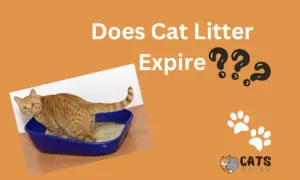
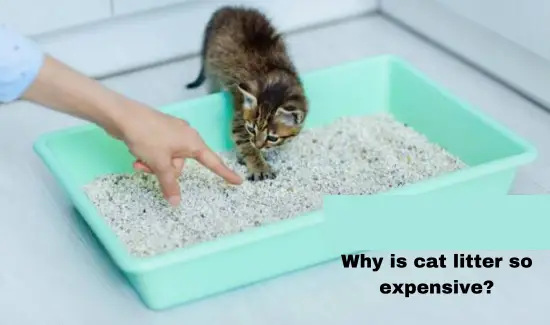
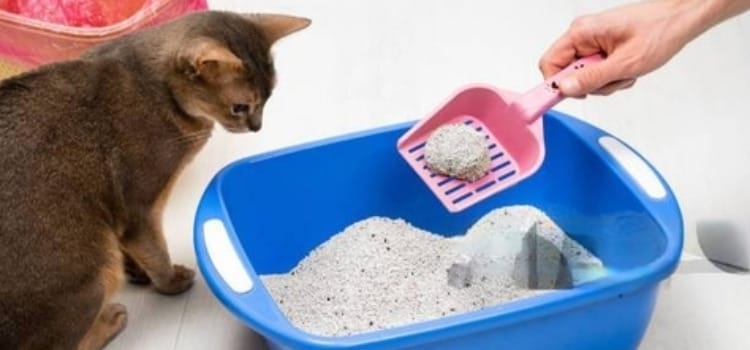
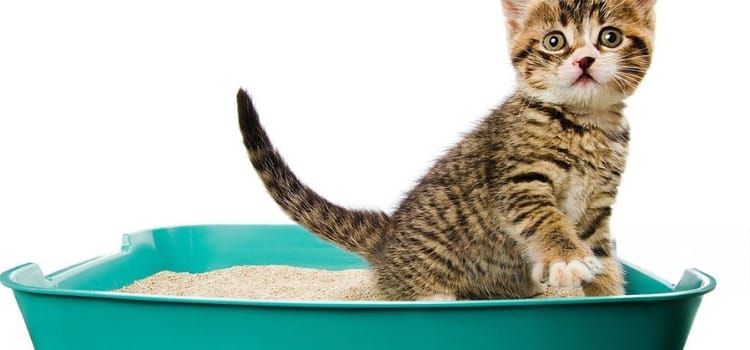
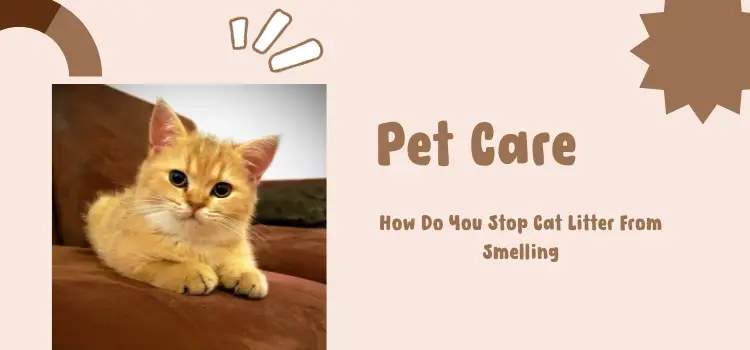
Hey people!!!!!
Good mood and good luck to everyone!!!!!